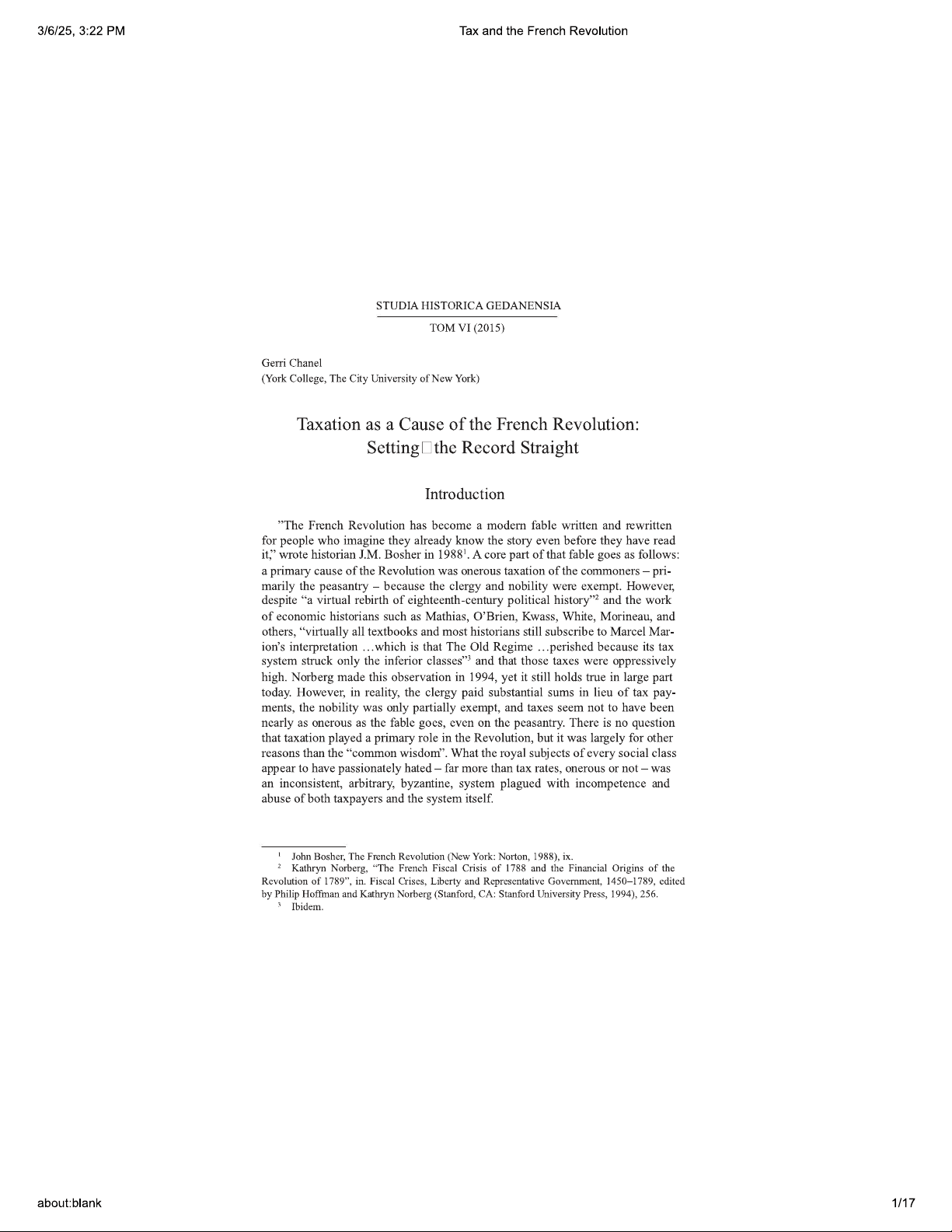
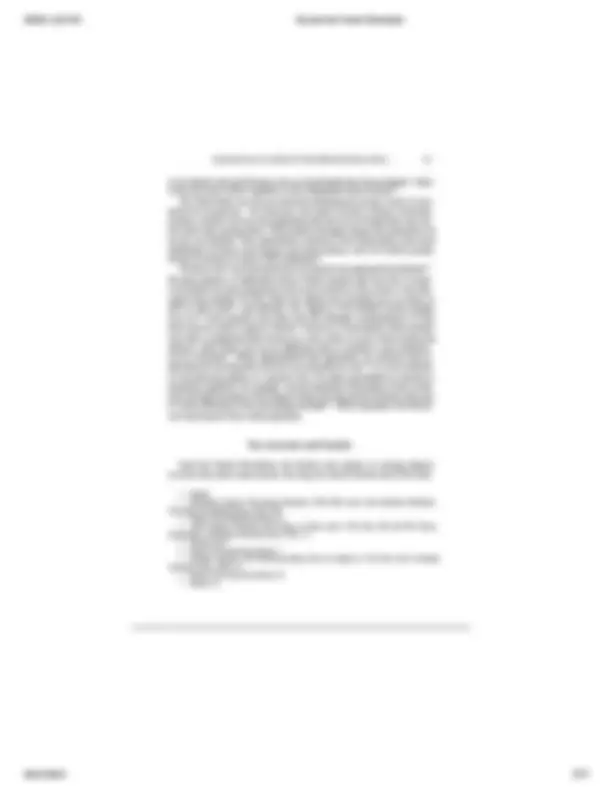
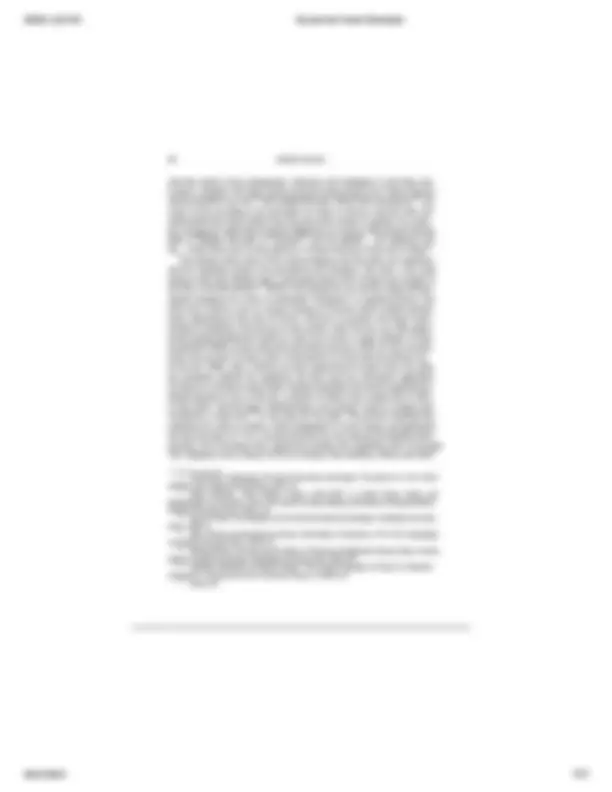
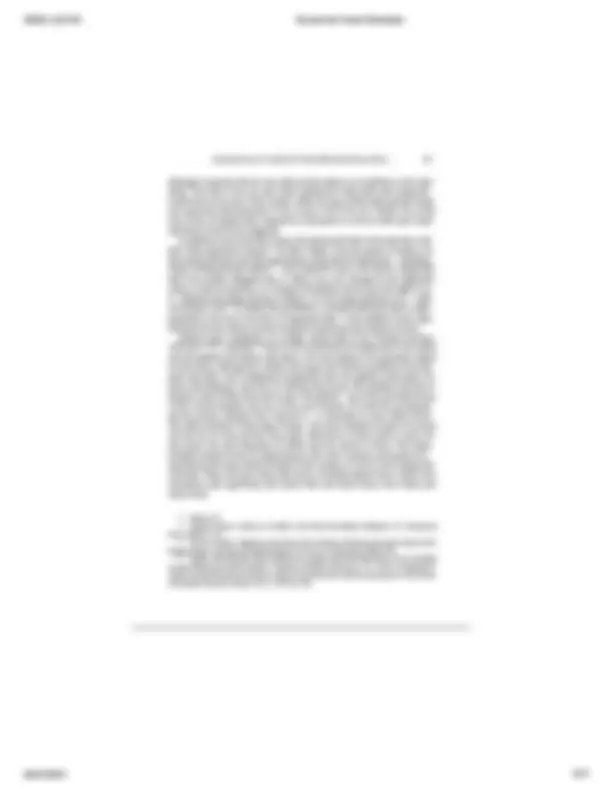
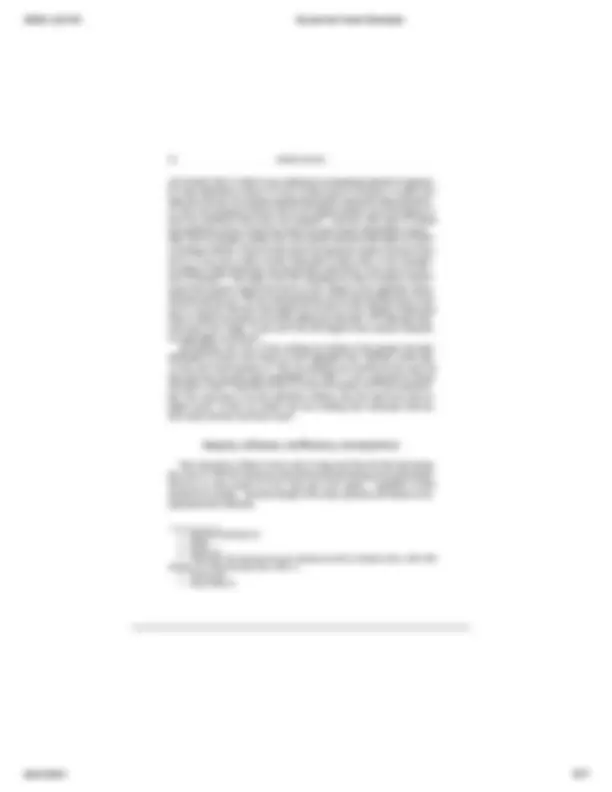
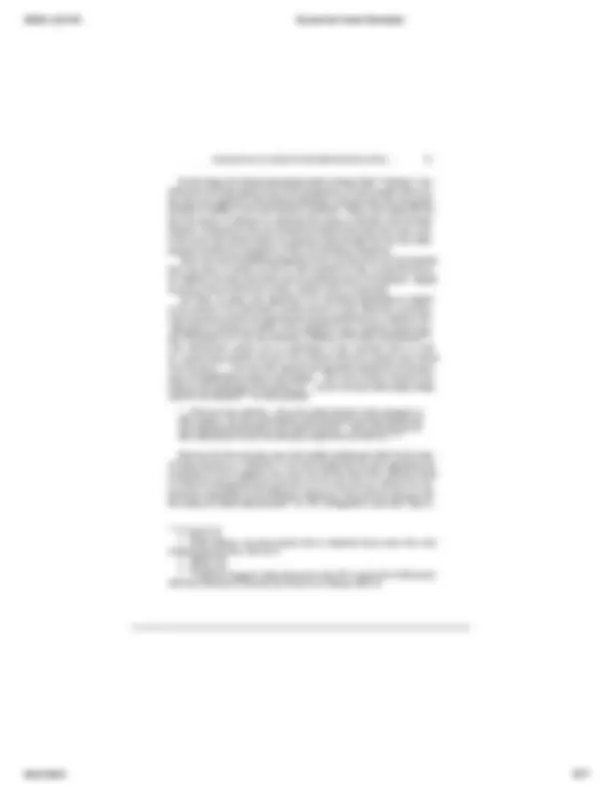
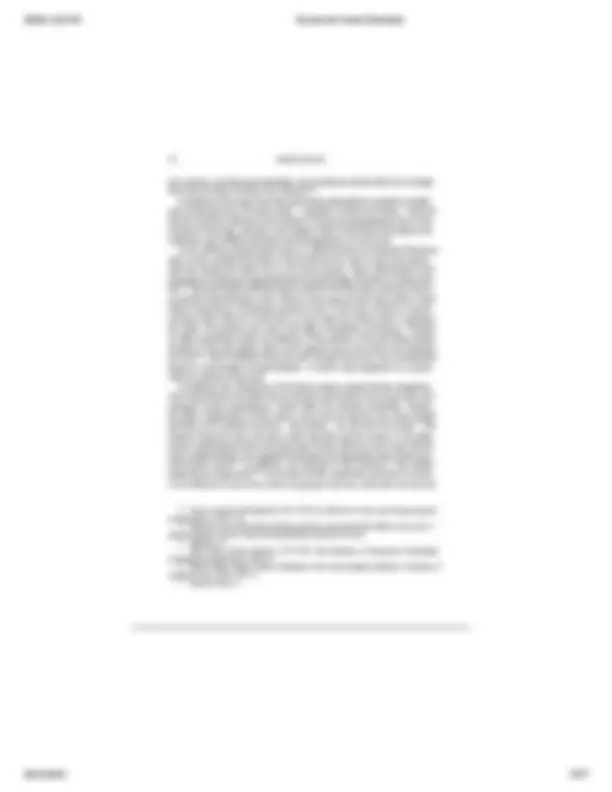





Study with the several resources on Docsity

Earn points by helping other students or get them with a premium plan


Prepare for your exams
Study with the several resources on Docsity

Earn points to download
Earn points by helping other students or get them with a premium plan
Community
Ask the community for help and clear up your study doubts
Discover the best universities in your country according to Docsity users
Free resources
Download our free guides on studying techniques, anxiety management strategies, and thesis advice from Docsity tutors
The article, titled "Taxation as a Cause of the French Revolution: Setting the Record Straight" by Gerri Chanel, challenges the traditional narrative that oppressive taxation of the peasantry was the primary cause of the French Revolution. Instead, it argues that the tax system's complexity, inconsistency, and corruption were more significant factors. The article highlights that while the clergy and nobility were not entirely exempt from taxes, the system was riddled with arbitrary assessments, exemptions for the wealthy, and widespread inefficiency. The author emphasizes that all social classes, not just the peasants, were frustrated with the tax system, which was plagued by abuse, incompetence, and a lack of accountability. The article concludes that the Revolution was driven more by the systemic flaws and injustices of the tax system rather than the sheer burden of taxation itself.
Typology: Study notes
1 / 17

This page cannot be seen from the preview
Don't miss anything!









